Instrumentation Supervisor
20+ Instrumentation Supervisor Interview Questions and Answers

Asked in Gulf Contracting

Q. *What is Instrument *why we calibration Instrument *what is 4 m.a *why 0 to 20 m.a is not used * where is used secondary and primary cable *what is responsibility of supervisor *how arrange materials *what is b...
read moreAnswers to questions related to Instrumentation Supervisor position
An instrument is a device used to measure or control a process variable
Calibration is necessary to ensure accuracy and reliability of measurements
4 m.a is the minimum current required to operate a loop
0 to 20 m.a is not used because it does not provide a clear indication of a fault in the loop
Secondary cables are used for longer distances while primary cables are used for shorter distances
The responsibility of...read more

Asked in Kuwait Oil Company

Q. If a control valve gland packing leaks, what should you do?
Immediately isolate the control valve, assess the severity of the leak, and take appropriate actions to repair or replace the gland packaging.
Isolate the control valve to prevent further leakage and potential hazards.
Assess the severity of the leak by checking the amount of leakage and its impact on the process.
Take appropriate actions such as tightening the gland nuts, replacing the packing material, or replacing the entire control valve if necessary.
Ensure proper documentat...read more
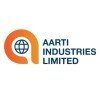
Asked in Aarti Industries

Q. Types of transmitter, PLC DCS system, Safety awareness, valves etc...
Transmitters, PLC DCS systems, safety awareness, and valves are all important aspects of an instrumentation supervisor's job.
Transmitters are devices that convert physical variables into electrical signals.
PLC (Programmable Logic Controller) and DCS (Distributed Control System) are computer-based control systems used in industrial automation.
Safety awareness is crucial in any industrial setting to prevent accidents and ensure compliance with regulations.
Valves are used to con...read more
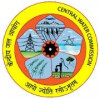
Asked in Central Water Commission

Q. What is the boiling point of water?
The boiling point of water is 100 degrees Celsius or 212 degrees Fahrenheit.
The boiling point of water is the temperature at which it changes from a liquid to a gas.
At sea level, water boils at 100 degrees Celsius or 212 degrees Fahrenheit.
The boiling point of water can vary with altitude and pressure.
Water boils faster at higher altitudes due to lower atmospheric pressure.
Boiling point can also be affected by impurities or dissolved substances in the water.
Asked in Miraj Instrumentation Services

Q. How does a pressure transmitter work?
A pressure transmitter converts pressure into an electrical signal that can be read by a control system.
Pressure is applied to a sensing element, which generates a small electrical signal proportional to the pressure.
This signal is amplified and conditioned by the transmitter electronics.
The resulting output signal is sent to a control system, where it can be used for monitoring or control purposes.
Pressure transmitters are commonly used in industrial applications, such as mo...read more

Asked in Kuwait Oil Company

Q. What is POS and what is MOS?
POS stands for Point of Sale, which is a system used for processing transactions. MOS stands for Management Operating System, used for monitoring and controlling processes.
POS is a system used by businesses to process transactions at the point of sale.
MOS is a system used for monitoring and controlling processes within an organization.
POS examples include cash registers, credit card terminals, and online payment systems.
MOS examples include software that tracks production met...read more
Instrumentation Supervisor Jobs




Asked in GSPC Gas

Q. How do you document work, such as filling out reports and work permits?
Effective documentation ensures compliance, safety, and clarity in instrumentation work processes.
Maintain a daily log of activities, including tasks completed and any issues encountered.
Use standardized report formats for consistency, such as incident reports or maintenance logs.
Document permits for work, ensuring all safety protocols are followed and approvals are obtained.
Example: Fill out a work permit for hot work, detailing the scope, safety measures, and personnel invo...read more

Asked in Techno Concepts

Q. How knowledgeable are you about instrument supervisor work?
A good knowledge of instrument supervisor work involves understanding of various instruments, troubleshooting skills, maintenance procedures, and safety protocols.
Understanding of different types of instruments and their functions
Ability to troubleshoot instrument issues and perform repairs
Knowledge of maintenance procedures to ensure instruments are functioning properly
Adherence to safety protocols to prevent accidents or injuries
Effective communication with team members and...read more
Share interview questions and help millions of jobseekers 🌟



Q. Boiler process and its instrumentation and control valve
Boiler process involves heating water to generate steam for various applications. Instrumentation and control valves are crucial for maintaining optimal operation.
Boiler process involves heating water to produce steam, which is used for heating, power generation, and other industrial processes.
Instrumentation in boiler systems includes sensors for measuring temperature, pressure, and flow rates to ensure safe and efficient operation.
Control valves are used to regulate the flo...read more
Asked in Miraj Instrumentation Services

Q. Converts mechanical energy to electric al energy.
Generator converts mechanical energy to electrical energy.
Generator uses the principle of electromagnetic induction to convert mechanical energy to electrical energy.
Examples of generators include hydroelectric generators, wind turbines, and gas turbines.
Generators are commonly used in power plants to produce electricity for homes and businesses.
The efficiency of a generator depends on factors such as the type of fuel used and the design of the generator.
Regular maintenance i...read more
Asked in Slns Engineering & Constructions

Q. What is instrumentation?
Instrumentation is the science and art of measuring and controlling variables in a system or process.
Instrumentation involves the use of various instruments and devices to measure and monitor physical quantities such as temperature, pressure, flow rate, and level.
It also includes the control and automation of these variables to ensure optimal performance and safety.
Instrumentation is essential in industries such as manufacturing, oil and gas, power generation, and chemical pr...read more

Asked in Asian Paints

Q. How do you solve instrument-related problems to minimize downtime?
Effective troubleshooting and preventive measures minimize instrument downtime in any operational setting.
Implement regular maintenance schedules to identify issues before they escalate. For example, calibrating sensors quarterly.
Utilize diagnostic tools to quickly identify faults. For instance, using multimeters to check electrical connections.
Train staff on basic troubleshooting techniques to empower them to resolve minor issues independently, reducing reliance on specialis...read more
Asked in Miraj Instrumentation Services

Q. Name two units of pressure.
Two common pressure units are PSI (pounds per square inch) and bar.
PSI (pounds per square inch) is commonly used in the United States.
Bar is a metric unit of pressure commonly used in Europe and other parts of the world.
Other pressure units include pascal (Pa), atmosphere (atm), and torr.
Asked in Fawaz Trading & Engineering Servies

Q. What is PID and its working principle?
PID stands for Proportional-Integral-Derivative. It is a control loop feedback mechanism used in industrial automation.
PID is used to maintain a desired setpoint by continuously adjusting a control output based on the difference between the setpoint and the measured process variable.
Proportional control responds to the current error, integral control responds to the accumulated error, and derivative control responds to the rate of change of the error.
PID controllers are widel...read more
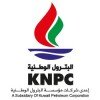
Asked in Kuwait National Petroleum Company

Q. Explain and draw the DCS architecture.
DCS architecture is a control system used in industrial automation to monitor and control processes.
DCS consists of multiple controllers connected to input/output devices and operator stations.
Controllers communicate with each other and with operator stations to control the process.
Redundancy is often built into DCS architecture for reliability.
Example: A typical DCS architecture includes a central control room with operator stations, controllers, and field devices like senso...read more

Asked in Concentrix Corporation

Q. What is calibration?
Calibration is the process of adjusting and verifying the accuracy of an instrument or device.
Calibration involves comparing the measurements of an instrument to a known standard.
It ensures that the instrument provides accurate and reliable results.
Calibration may involve adjusting the instrument to align with the standard or documenting any deviations.
Regular calibration is necessary to maintain the instrument's accuracy over time.
Examples of instruments that require calibra...read more
Asked in Fawaz Trading & Engineering Servies

Q. What is an orifice plate?
An orifice plate is a thin plate with a hole in the center used to measure fluid flow rate in pipelines.
It is installed in a pipeline to create a pressure drop, which is proportional to the flow rate.
The pressure difference is measured using pressure taps on either side of the plate.
The flow rate is calculated using Bernoulli's equation or a flow coefficient.
Orifice plates are commonly used in industries such as oil and gas, chemical, and water treatment.
Different types of or...read more

Asked in Shilpa Medicare

Q. Calibration of instruments
Calibration of instruments is a crucial process to ensure accurate and reliable measurements.
Calibration involves comparing the readings of an instrument to a known standard.
Adjustments are made to the instrument to bring it into alignment with the standard.
Calibration should be performed regularly to maintain accuracy.
Documentation of calibration procedures and results is important for quality control and compliance.
Examples of instruments that require calibration include pr...read more

Asked in Madina Group

Q. Configuration of instruments
Configuration of instruments involves setting up and adjusting instruments for optimal performance.
Configuration involves selecting appropriate measurement ranges and units.
Calibration of instruments is necessary to ensure accuracy.
Proper wiring and connection of instruments is crucial.
Configuration may also involve programming of instruments for specific tasks.
Regular maintenance and troubleshooting is important to ensure continued optimal performance.

Asked in Titan Company

Q. How many types of bags are there?
There are various types of bags available for different purposes.
Types of bags include backpacks, handbags, tote bags, duffel bags, messenger bags, and briefcases.
Other types of bags include shopping bags, garbage bags, paper bags, and plastic bags.
Specialized bags include camera bags, laptop bags, diaper bags, and gym bags.
There are also different types of bags used in industries like instrument bags, tool bags, and medical bags.
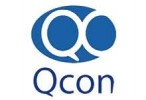
Asked in Qcon

Q. What are the responsibilities of an instrument supervisor?
An Instrumentation Supervisor oversees the installation, maintenance, and calibration of instruments in various industries.
Manage a team of technicians to ensure timely maintenance and calibration of instruments.
Develop and implement standard operating procedures for instrument handling.
Conduct regular inspections and audits to ensure compliance with safety and quality standards.
Coordinate with other departments to ensure seamless integration of instrumentation in projects.
Pr...read more

Asked in Royal Enfield

Q. What is a PLC?
A PLC (Programmable Logic Controller) is an industrial digital computer used for automation of electromechanical processes.
PLCs are used in manufacturing processes to control machinery.
They can be programmed to perform specific tasks, such as controlling conveyor belts.
PLCs are robust and designed to withstand harsh industrial environments.
Examples include Allen-Bradley, Siemens, and Mitsubishi PLCs.
Interview Questions of Similar Designations
Interview Experiences of Popular Companies



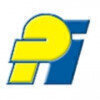
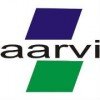



Reviews
Interviews
Salaries
Users

















